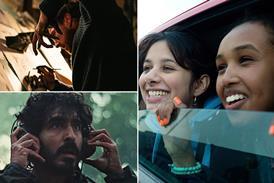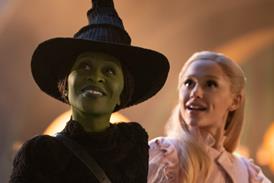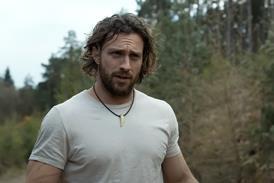Dir: Savi Gabizon. Israel, 2003. 106mins.
Film-maker Savi Gabizon's gently nonsensical humour has been much appreciated in the past by both Israeli critics and audiences. His new coming-of-age comedy, which looks at a gallery of eccentric, obsessive characters engineering themselves into impossible corners, should do reasonably well at home, especially after its recent Wolgin Award for Best Israeli feature, cinematography and script at the Jerusalem International Film festival, its stellar Israeli cast and strong support from local media. Gabizon gingerly walks the line between endearing and absurd, tears and laughter, but his picture lacks the urgency of his earlier efforts and instead looks less spontaneous and more calculated. Its nonchalant procedure and dialogue-driven witticisms will also make it a hard sell in non-Hebrew speaking markets
Gabizon is a meticulous craftsman who tinkers with each one of his projects for a long time: Nina's Tragedies is only his third film in 10 years. This ensemble piece is best defined by its title - A Very Sad Comedy, where every laugh is soaked in bitter melancholy.
His protagonist, Nadav (Elkabetz), a shy, bespectacled but fiercely stubborn young teen not only has to deal with his budding sexuality, but also with the mysteries of life, from birth to death, which he consistently stumbles over throughout the film. He surreptitiously observes and writes down everything he sees, feels and suspects (he cannot have witnessed some of the incidents he describes) in his diary, whose text provides the film's voice-over.
The basic mood is set in the opening scene, in a mortuary, where the corpse of Nadav's father lies on a catafalque, waiting for the squeaking wheel of a trolley to be fixed before he makes his last earthly journey. Nadav peeps through the window - peeping is his main occupation - and notices the grotesque and the tragic seamlessly blended together. The rest of the film is a long flashback that covers an eventful period in Nadav's adolescence, concluding only with the end titles.
The film is first of all about Nadav's family: his father (Ben Ari) a fighter pilot who left his wife and son to return to his religious roots, his fashion-designer mother (Waxman), who reacts with a rapid succession of partners, and most importantly, his mother's sister, Nina (Zorer), a young woman for whom Nadav nurses an innocent puppy love. Almost as important are Nina's husband, Haimon (Hatab), whose untimely death triggers subsequent events; Avinoam (Aboutboul), for whom Nina develops a burning passion of which the jealous Nadav profoundly disapproves; and Avinoam's girlfriend, an abstract painter who expresses herself in abstract terminology.
Other characters include Menachem (Navon), Nadav's grown-up pal on his peeking bouts around the neighbourhood; Menachem's love interest (Dodina); and her former lover (Hatab again), who has a weakness for walking around naked, which supplies the providential rabbit necessary for Gabizon's script to pull out of the hat.
Gabizon treats these characters and others with loose paternal affection, accepting their weirdness as perfectly normal. Irony is directed towards easy targets like the pretentiousness of modern art and the Hassidic fervour of congregations. Even then, Gabizon handles such subjects quite cheerfully, taking everything in his stride.
Lovingly shot by Israel's premier cameraman, David Gurfinkel, but mostly relying on dialogue to tell the story, Gabizon's picture benefits from nicely calibrated performances by Zorer, who has a real star quality about her, valiantly supported by Hatab, Ari, Navon and Dodina. Waxman's mother tends to go over the top in her enthusiasm and Elkabetz looks too young for his part.
Prod co: Anath Assoulin Productions
Prods: Anath Assoulin, Savi Gabizon
Scr: Gabizon
Cinematography: David Gurfinkel
Ed: Tali Halter Shenkar
Music: Assaf Amdursky
Main cast: Ayeleth Zorer, Aviv Elkabetz, Yoram Hatab, Alon Aboutboul, Anat Waxman, Shmil Ben Ari, Dov Navon, Evgenya Dodina


















No comments yet